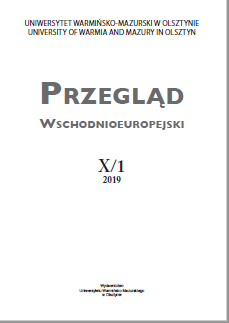INTERFERENCJA ROSYJSKO - CERKIEWNOSŁOWIAŃSKA W TEKSTACH STAROOBRZĘDOWYCH Z XIX–XX WIEKU
RUSSIAN-OLD CHURCH SLAVONIC INTERFERENCE IN OLD BELIEVERS’ TEXTS FROM THE 19TH AND 20TH CENTURY
Author(s): Helena PociechinaSubject(s): Christian Theology and Religion, Cultural history, Russian Literature, Theory of Literature
Published by: Wydawnictwo Uniwersytetu Warmińsko-Mazurskiego w Olsztynie
Keywords: Old Believers Book of XIX century; Church Slavonic; diglossia and bilingualism; code-switching;
Summary/Abstract: Until today, the Russian of Old Believers’ prints and manuscripts has not been subject to research in linguistic studies. The written language under investigation here, as seen in hand-written notebooks or books printed illegally, is based on the urban variant of the Russian colloquial language. Old Church Slavonic elements are prominent in the analyzed texts, which might be the result of teaching the skills of reading and writing from Old Church Slavonic primers (azbukas) and from the Church Slavonic Psalter and Horologion (Book of Hours). This feature of the analyzed texts refers not only to paraliturgical scripts (used to pray at home) but also to polemic and didactic writings, as well as texts aimed to be read aloud or sung, such as spiritual poems. Fragments of texts in Old Church Slavonic are mainly quotations or reminiscences from the Holy Scripture and writings of the Church Fathers, taken from early polemic texts. The fragments also refer to the everyday reality of the Orthodox Church life. The paper presents analyses of texts such as: “Wiecznaja Pravda” by Avvakum Komissarov, Sinodik, Skitskoje pokajanije, Czin ispowiedaniju, as well as calendars and spiritual guides.
Journal: Przegląd Wschodnioeuropejski
- Issue Year: X/2019
- Issue No: 1
- Page Range: 373-388
- Page Count: 16
- Language: Polish

